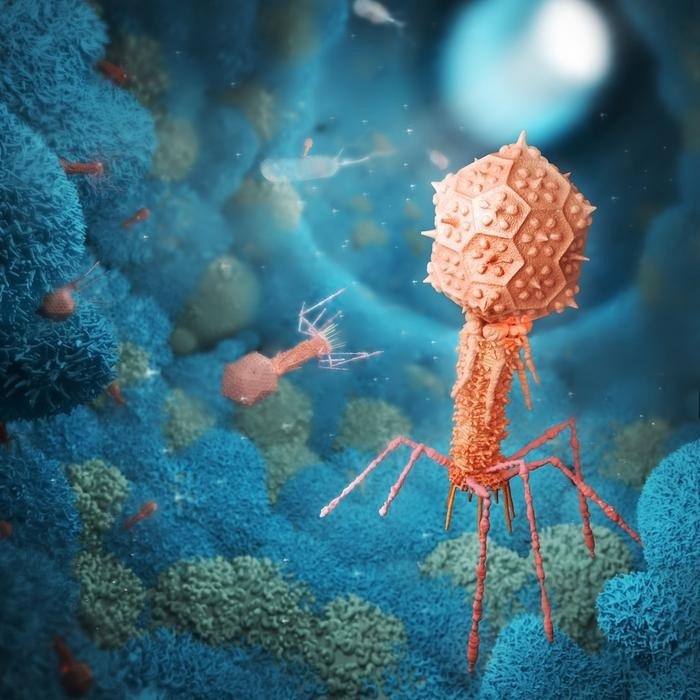Bacteriophages are viral agents that invade and eliminate bacteria, their innate hosts. However, when examining them from a molecular perspective, bacteriophages can be regarded as nucleotide-rich capsules encased in an amino acid shell, providing a source of nutrition.
 Bacteriophage particle interacting with mammalian cells. Image Credit: T2Q and Barr Lab
Bacteriophage particle interacting with mammalian cells. Image Credit: T2Q and Barr Lab
In a research study released on October 26th in the open-access journal PLOS Biology, Jeremy J. Barr, along with colleagues from Monash University in Victoria, Australia, present findings indicating that mammalian cells may uptake phages as a means to enhance cellular growth and survival.
While researchers are familiar with bacteriophages’ interactions with bacteria and the various symbiotic relationships between bacteria and their mammalian hosts, the influence of bacteriophages on mammalian cellular and immunological functions remains relatively uncharted territory.
To examine the interplay between mammalian cells' immune responses and their interactions with bacteriophages, the research team conducted experiments involving the widely studied T4 phage and mammalian cells in vitro.
They then scrutinized the cellular reactions through the use of luciferase reporter and antibody microarray assays, using the phage-free supernatant as a reference point for comparison.
The results of the study revealed that T4 phages did not activate DNA-mediated inflammatory pathways but instead initiated a cascade of signaling events that bolstered cellular growth and viability.
However, further investigations are essential to elucidate the underlying reasons for cells employing phage particles as a resource and to ascertain whether this internalization has evolved as a specific adaptation for their benefit.
According to the authors, “This preliminary study provides novel insights into the impact phages have on mammalian systems, with broader potential implications across the fields of immunology, phage therapy, microbiome, and human health.”
This work provides new insights into the additional benefits that bacteriophages may have on their mammalian hosts. This is of particular importance given the increased use of phage therapy to treat antibiotic-resistant infections.”
Jeremy Barr, Monash University
Source:
Journal reference:
Bichet, M. C., et al. (2023) Mammalian cells internalize bacteriophages and use them as a resource to enhance cellular growth and survival. PLOS Biology. doi.org/10.1371/journal.pbio.3002341